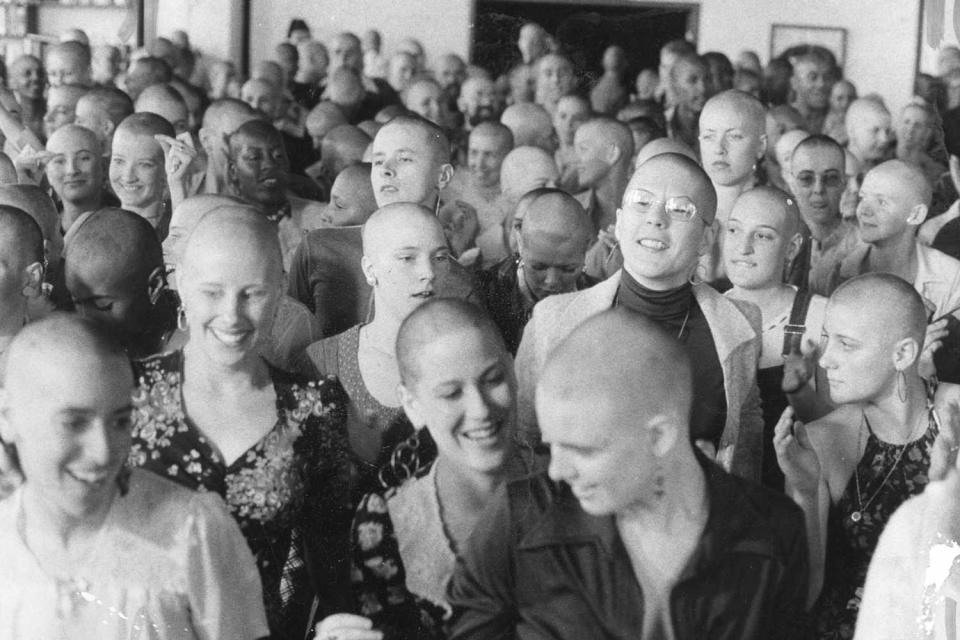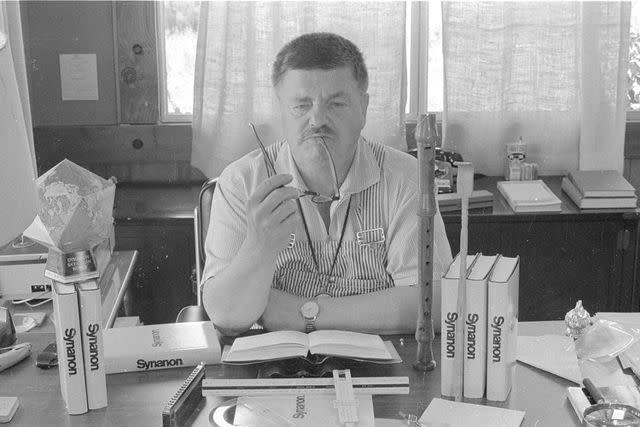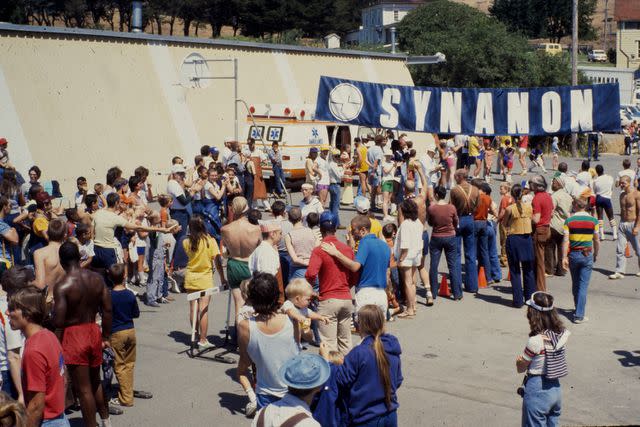'From Healing to Horror': Was Synanon, the Rehab Program that Became a Religious Movement, a Cult?
HBO's upcoming docuseries "The Synanon Fix," from executive producers Rory Kennedy and Mark Bailey, examines the group that amassed more than 1,000 followers

San Francisco Chronicle/Hearst Newspapers via Getty Images/HBO
Synanon members in 1975Before there were organizations in place to help people with drug addiction, the landscape for people with these problems was harsh and unforgiving. In the late 1950s, Charles "Chuck" Dederich wanted to change that.
Dederich — who was open about being a member of Alcoholic Anonymous — wanted to create a similar program that helped people with drug addiction as well. In 1958, he founded the organization Synanon in Santa Monica, Calif.
The organization began as a rehabilitation program but turned into a religious movement known as "The Church of Synanon," which was, in some ways, significantly ahead of its time. Dederich and the church promoted racial and class equality and an integrated society among the members. But as Synanon grew, so did Dederich's power.
Eventually amassing more than 1,000 followers, Dederich began controlling people's behavior, forcing vasectomies, abortions and divorces, encouraging women to shave their heads and promoting corporal punishment and violence.
HBO’s upcoming documentary series, The Synanon Fix, features archival footage from inside of Synanon and interviews with more than a dozen former members, including Dederich's daughter.
(The exclusive trailer for The Synanon Fix, premiering April 1 on HBO, is below.)
Executive Producers of The Synanon Fix Rory Kennedy and Mark Bailey tell PEOPLE they believe Dederich was “absolutely sincere" at the onset of Synanon and "stumbled upon a revolutionary way to treat drug addicts and built an organization, which soon became a community, around that purpose."
Want to keep up with the latest crime coverage? Sign up for PEOPLE's free True Crime newsletter for breaking crime news, ongoing trial coverage and details of intriguing unsolved cases.
However, “Synanon changed over time,” Kennedy and Bailey say. “It was in many ways a journey from healing to horror.”

Bruce Levine/HBO
Charles "Chuck" DederichThe series delves into Synanon's practices, including a method known as "The Game," which at one time "was considered an enormously effective therapeutic tool and was celebrated by the wider psychiatric community as Chuck’s greatest innovation," Kennedy and Bailey say.
The Game began as a tool used to verbally confront people. "But as with so much at Synanon, The Game deteriorated over time," Kennedy and Bailey say. "Across the decades, it transformed into something more political and controlling."
Today, many believe The Game — and Synanon as a whole — helped spawn the "Troubled Teen Industry" and numerous facilities and programs that many believe use ideas created and popularized by Synanon.

Bruce Levine/HBO
Synanon membersAfter a series of legal troubles and alleged criminal activity, including conspiracy to commit murder charges against Dederich, Synanon disbanded in 1991. Dederich died in 1997, but the teachings of Synanon are believed to live on.
"The Synanon Fix is not simply a story about the tragic downfall of a so-called cult; but rather, it is about the fragility of human beings and their longing for community," Kennedy and Bailey say.
Was Synanon really a cult? "This is difficult to answer definitively because for many members Synanon transformed their lives for the better," the filmakers say. "So to us, this is one of the key questions the series explores. And as filmmakers, we tried our best to lay out what happened, who was affected, and allow the audience to come to their own conclusion."
The HBO Original four-part documentary series The Synanon Fix debuts Monday, April 1 from 9 to 10 p.m. ET/PT on HBO, and will be available to stream on Max, with new episodes debuting subsequent Mondays at the same time.
For more People news, make sure to sign up for our newsletter!
Read the original article on People.


